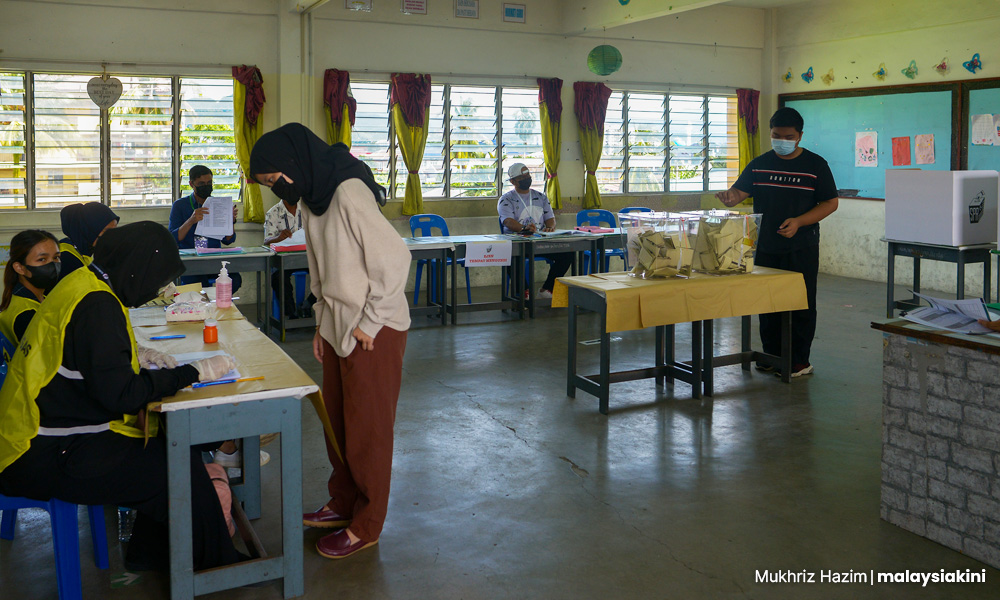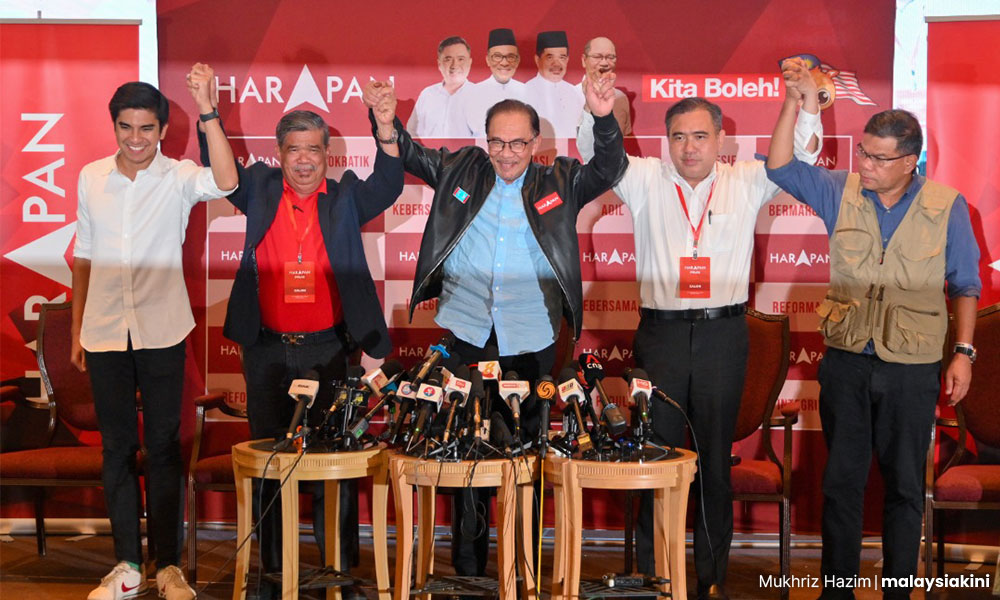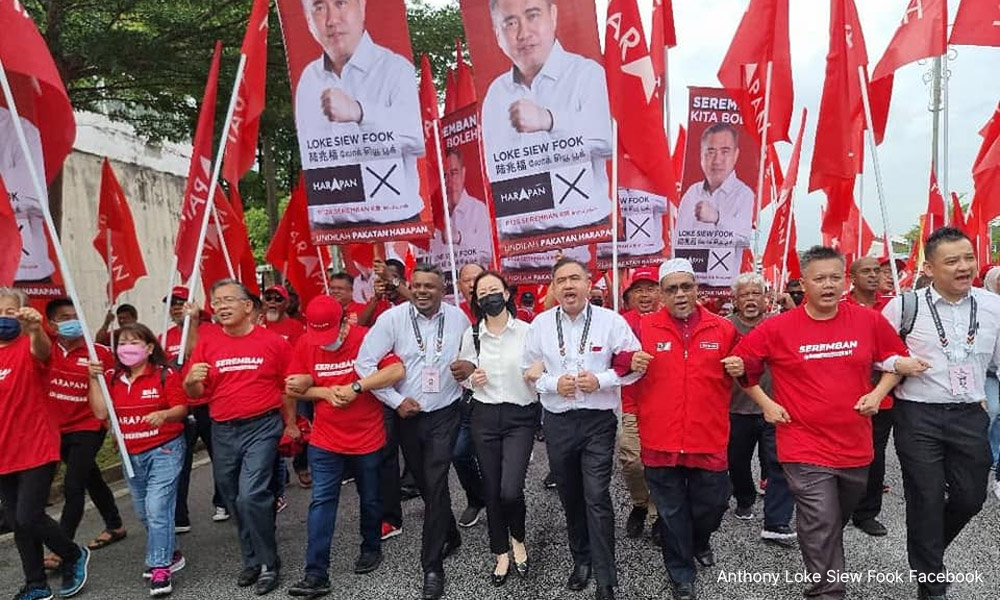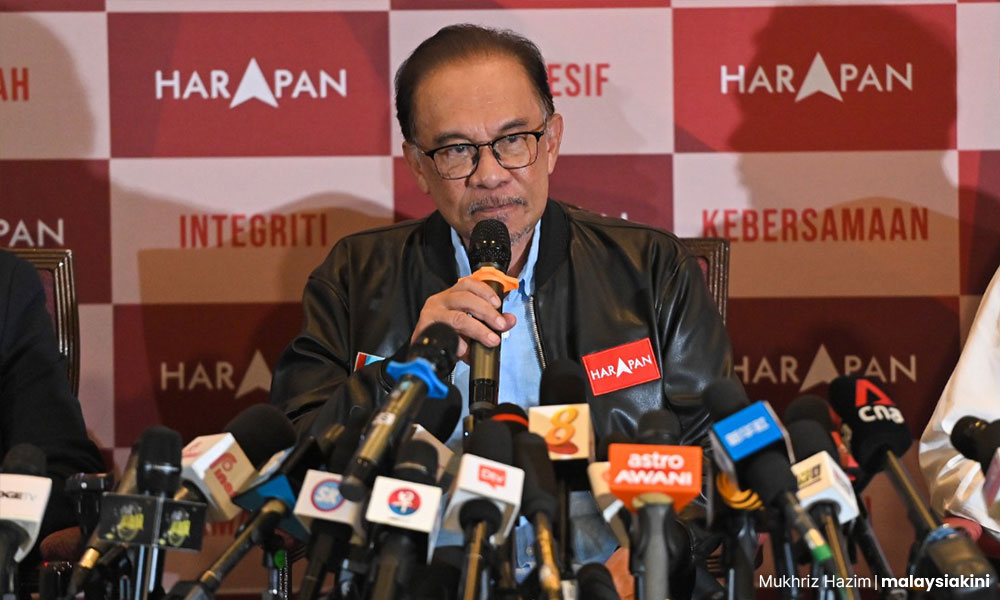PAS is now the biggest party in Parliament. You might be feeling extremely anxious about this. Some might even be practically in a panic.
That’s very understandable.
I think the best way to get a full picture of what is now happening in Malaysian politics is for those who are feeling this way to take some time to imagine and contextualise:
This is how many, many Malaysians felt in the aftermath of GE14 in 2018. Back then, DAP was the biggest party in government and the second biggest party in Parliament.
Many, many Malaysians felt extremely anxious about that. Some were even practically in a panic.
Partisan politics tends to blind us and twist and turn our principles into pretzels.
If we step outside of our entrenched partisan views, however, we might be able to see that just as DAP in power didn’t completely smash and ruin Malaysia, PAS being the biggest party in Parliament will not completely smash and ruin Malaysia either.
In five or so years, there will still be a Malaysia standing. It may very well be much, much worse for wear. But it will still be standing. And so will the rest of us.
Thus, I believe, for those of us who want a different kind of Malaysia, now is not the time to be wringing our hands, tearing out our hair in despair, and so on.
By all means, take all the time needed to mourn, process, and recover from this big blow.
Eventually, though, we will have to face the question: What’s next?
The biggest worry seems to be that yesterday’s GE15 results indicate a larger, long-term trend - one that is of heightened concern because of the perceived voting inclinations of the youngest voters.

The “doom and gloomers” are concluding that young Malaysians are religious fanatics, and the country is going to the dumps for sure.
I choose a different interpretation.
The result of not having better options
In summary, I think people voted for what they perceived was their ‘least bad’ option - not the option they were super excited about.
For many, that meant voting for Pakatan Harapan.

I realise that excitement for Harapan ramps up a lot in the days leading to voting. But I also recall that, in the months past, enthusiasm had been waning for a long time.
Nevertheless, people chose the best choice available to them.
I hypothesise that many voters - perhaps especially young, Malay swing voters - used the exact same reasoning, but concluded that the least bad option was Perikatan Nasional.
And if I had to hazard the key points of their reasoning, I would keep it extremely simple:
One: “Umno is bad/boring/uninspiring.”
Two: “DAP represents oversized Chinese power that I feel is threatening.”
Therefore: “I choose PN - the least bad of all options.”
Implications for Harapan and DAP
People can and will analyse various factors to death. There are surely a thousand more. But my view is that the most important analysis is the one with the widest lens - the one it all really boils down to.
If the hypothesis above leans correct, what are the implications for Harapan? If the most important deterrent to voting for Harapan lies with DAP, then perhaps we can start there.
On this question, an article I wrote in April 2021 seems to remain relevant.
To summarise, I argued that DAP’s biggest asset - an essentially guaranteed high number of seats - was also its biggest liability.

Because it is so strong, and essentially represents a unified Chinese vote, it will always be perceived as a threat - almost regardless of what they say and do. Their political power and size will always speak louder than their words.
I wrote that, in the long run, DAP can have at most two of the following three at any given time: one, being led by non-Malays; two, a massive presence in Parliament; and three, meaningful influence in government.
I know that’s hard to swallow, and the opposite of what many, many Malaysians want. But in my humble opinion, this reality has played out in maybe three or four of the last general elections.
Of course, it’s not ‘all DAP’s fault’ or any such nonsense.
The Harapan formula as a whole can of course be re-examined. But as it stands, its defining feature is probably how DAP accounts for about half of Harapan’s seats, as seen in GE15 and GE14.
Their enemies simply play the narrative that voting Harapan equates to Chinese dominance, and, in the seats that matter, Harapan has simply not succeeded in convincing people otherwise - and I do believe they’ve tried their very best).
What’s next?
So, for the people who traditionally hope Harapan will win, what’s next?
(As a caveat of course, at the time of writing, Harapan chairperson Anwar Ibrahim might still become prime minister. That will change almost everything).

If we get down to brass tacks, I suppose it boils down to two main options.
First, that Harapan will somehow transform, change, evolve, and finally find a winning formula (third/fourth/fifth time’s the charm?).
Second, we need to look at completely new formulas, possibly outside of Harapan.
It would be unkind to go too deep into the latter at a time when many friends and supporters of Harapan are going through such a tough time.
I know it’s unlikely to be a common sentiment right now, but if we consider the arc of Malaysian politics over the last one or two decades, I think even with these very challenging results, there may actually be cause for some optimism.
First of all, as mentioned earlier - when PAS or DAP comes into power, either one half or another of the country is going to start getting really anxious and upset.
If there is no significant change to Malaysia’s political landscape, we are likely to be trapped in this cycle forever - much like how America gets into a huff as they change from Democrats to Republicans.
In the end, though, this constant antagonism and extreme polarisation only benefit an unsavoury few.
Again, I chose my main takeaway from GE15 to be that many people voted for someone they felt was ‘least bad’ - not someone who they felt was truly the highest calibre of leaders, representing the very best Malaysians who were truly committed to the welfare of the rakyat.
This may present a significant market opportunity if enough of us are willing to try something bold and new.
For now, I’m hoping everyone will go through as many feelings as they need to - but after this period of mourning, also remember there is still a lot of future we can shape. - Mkini
NATHANIEL TAN is a strategic communications consultant. Twitter: @NatAsasi, Email: nat@engage.my. #BangsaMalaysia #NextGenDemocracy.
The views expressed here are those of the author/contributor and do not necessarily represent the views of MMKtT.




No comments:
Post a Comment
Note: Only a member of this blog may post a comment.